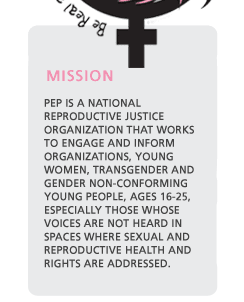�It is hard to deny the invaluable economic, political and social contributions that immigrant communities have made in the lives of every U.S. citizen. However, many immigrants, especially, women and children who are of undocumented status, fall into the shadows of U.S. society as a result of the difficulties they have on the path to citizenship. According the Census data, there are approximately 17.5 million immigrant women in the United States today, 3 million of whom are undocumented, and 16 percent of whom live in poverty. These women encounter obstacles to employment and health access; they also face violence and discrimination. A fair and comprehensive approach to immigration reform addressing the needs of immigrant women including discriminatory and violent practices, would provide a solid foundation for immigrant women and their families to achieve social justice and integration into U.S. society. Immigrant rights and reproductive justice are intrinsically linked because the reproductive health of immigrant women is profoundly affected by immigration policy.
Advocates of fair immigration reform are demanding the right to: live in our society without fearing deportation and discrimination; have access to our educational, health, and safety-net programs and systems; and work with basic protections and benefits, including health care coverage. Reproductive justice activists are similarly fighting for women's equal opportunity to fully participate in society, the freedom to determine the course of their lives, and the right and ability to access basic reproductive health services free of discrimination, harassment and shame. Both our progressive social agendas have been called "radical" and out of the mainstream. We know, however, that our shared values of self-determination and the freedom to live our lives with dignity are anything but radical.
Immigration and abortion rights are two of the most volatile issues of our time. The anti-immigrant and anti-choice movements have been very successful over the last several years at eroding basic rights at the state and federal levels. It is important to recognize that many of the individuals who want to stop immigrants from accessing basic health services, including prenatal care, are the same ones who support restrictions on women's access to abortion and family planning services. In this very hostile political environment, advocates for reproductive rights and immigrant rights must support each other. We must work together to stop efforts to criminalize immigrants AND criminalize abortion. We must speak out together to demand legalization for undocumented immigrants AND to demand access to basic reproductive health care services. We must work together and support each other in our common quest for salud, dignidady justicia.
With immigration reform looming, the time is now for reproductive health organizations dedicated to promoting the basic values of dignity, justice, and self-determination to raise their voices in support of fair and just immigration policies. We must advocate for the basic human right to health care, regardless of immigration status. We must continue to highlight how the right and ability to access health care information and services, including reproductive health care, is unjustly linked to racial, ethnic, socio-economic, sexuality and immigration status. The reproductive rights community must speak for immigration reform, including the rights and dignity of undocumented immigrants. This way, we can move one step closer to achieving reproductive justice and the American "dream."
Resources
For more information and resources, or to get involved in the National Coalition for Immigrant Women's Rights, visit the National Latina Institute for Reproductive Health: www.latinainstitute.org | 





